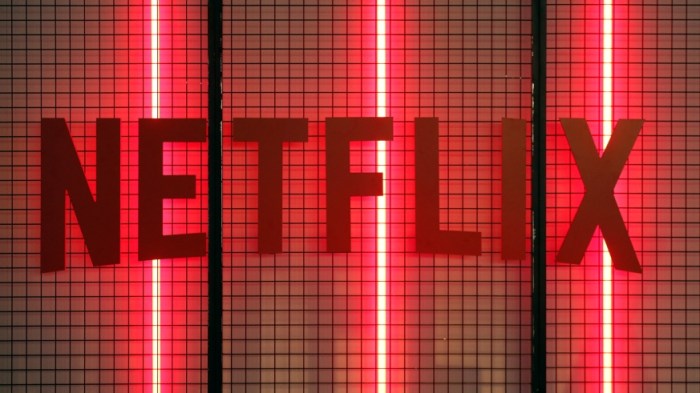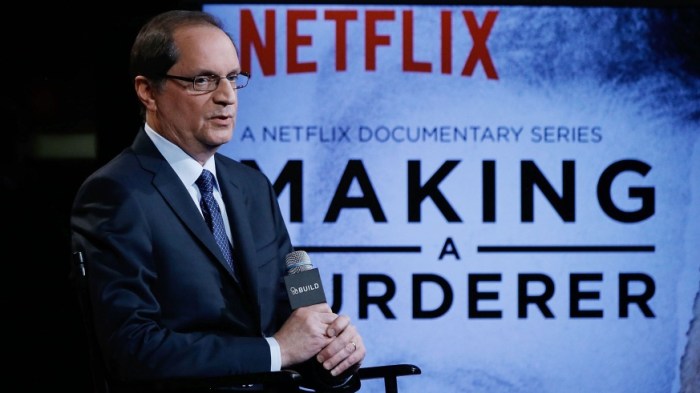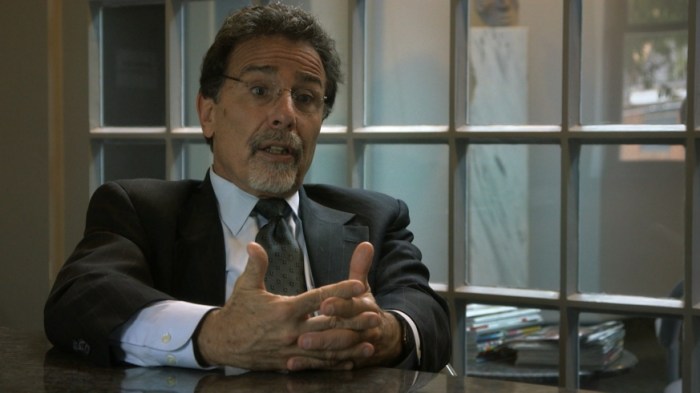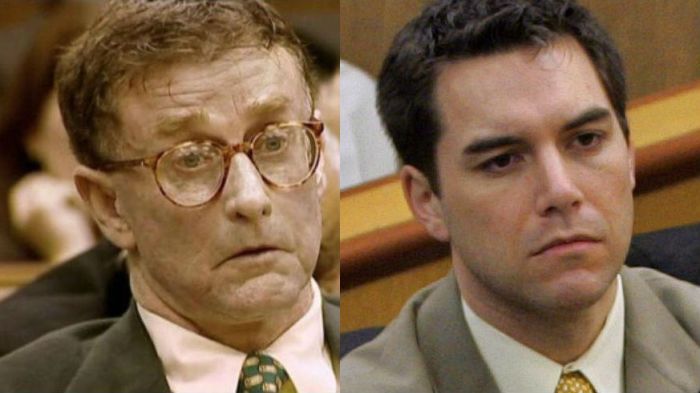You might have noticed that there’s a massive time jump in The Staircase, the hit true crime documentary series currently streaming on Netflix. The first chunk of episodes cover the first Michael Peterson trial, which wrapped up in 2003. The second covers Michael weighing the decision to face a retrial or accept a plea in 2017. But the first section of episodes were aired at Sundance well before the second time Michael Peterson faced Judge Hudson. So, did The Staircase effect the Michael Peterson trial or case?
After all, the point was not so much the guilt or innocence of Michael Peterson. The documentary director Jean-Xavier de Lestrade has been open about the fact that The Staircase is about the legal system and not Peterson himself. Even David Rudolf, Michael Peterson’s lawyer in the 2003 trial, told The Huffington Post that he thinks the series “achieved its purpose,” which is “not so much whether a particular person is guilty or innocent.”
No matter where you stand on Michael Peterson, it’s clear the documentary crew got incredible access, at least in the beginning. The earlier episodes of the series even feature interviews with the prosecution and Kathleen Peterson’s sister Candace Zamperini, whose fiery victim impact statement in the 2017 trial was one of the most memorable events in The Staircase. Surely there had to have been some impact of that much footage, especially after the first set of episodes were released to the public, right?
Did The Staircase effect the Michael Peterson trial?
Jean has been vocal about the fact that he believes The Staircase actually helped Michael Peterson’s case later on. But does anyone else believe that? David Rudolf does, and it’s all about Duane Deaver and his testimony. He told The Huffington Post that he reread Deaver’s testimony before the hearing about his qualifications. But there’s a real difference when you then go to the footage and you watch his demeanor and his facial expressions and how he’s playing to the jury,” he told the publication.
If you remember from the series, they played back footage the documentary team had taken of Duane Deaver’s testimony in court as well as recordings of the blood spatter tests Deaver had conducted with his team to try to replicate the crime scene. “It was powerful for me,” Rudolf said of rewatching it. “And I think it had to be powerful for Judge Hudson, sitting there, watching what had happened 10 years earlier.”

It was powerful for audiences of The Staircase, too, but did it actually change anything? Was the footage part of the reason that Michael Peterson was given a chance for a retrial after so many of his appeals were denied? “I never talked to [Judge Hudson] about it, but I think it had to have made it more real for him ― what a pathological liar Deaver had been during the trial,” Rudolf summarized. So it seems like the defense attorney stands with the director on this one.
Is that why Michael Peterson and his team agreed to give so much access for The Staircase?
So did they think it would be useful to have everything filmed? David Rudolf certainly comes across as composed and logically steps ahead in the trial, but he admitted to The Huffington Post that he wasn’t sure about the participation in the documentary. He felt “uneasy and opposed” when Jean approached him about the idea for The Staircase.

“I was not the least bit an advocate for doing this ― it was really Michael,” the lawyer admitted. It seems like Michael himself had a good idea about what was to come, and potentially saw the value in having everything recorded. “[I]t was really Michael who said, ‘You know, I’m not going to get a fair trial here, and I’d like to have a record, if you will, of what happens.’ I was reluctant at best, and opposed for the most part.”
So how does David Rudolf feel about it now that The Staircase appears to have helped in the Michael Peterson case? Keeping his cards close to his chest, he told The Huffington Post that now, “I feel OK about how it came out.”
























